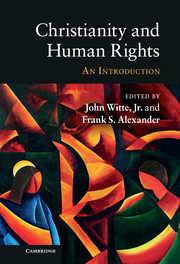Introduction
Published online by Cambridge University Press: 05 June 2012
Summary
The world has entered something of a “Dickensian era” in the past three decades. We have seen the best of human rights protections inscribed on the books, but some of the worst of human rights violations inflicted on the ground. We have celebrated the creation of more than thirty new constitutional democracies, but lamented the eruption of more than thirty new civil wars. We have witnessed the wisest of democratic statecraft and the most foolish of autocratic belligerence. For every South African spring of hope, there has been a Yugoslavian winter of despair, for every Ukrainian season of light, a Sudanese season of darkness.
These Dickensian paradoxes of the modern human rights revolution are particularly striking when viewed in their religious dimensions. On the one hand, the modern human rights revolution has helped to catalyze a great awakening of religion around the globe. In regions newly committed to democracy and human rights, ancient faiths once driven underground by autocratic oppressors have sprung forth with new vigor. In the former Soviet bloc, for example, numerous Buddhist, Christian, Hindu, Jewish, Muslim, and other faiths have been awakened, alongside a host of exotic goddess, naturalist, and personality cults. In post-colonial and post-revolutionary Africa, these same mainline religious groups have come to flourish in numerous conventional and inculturated forms, alongside a bewildering array of Traditional groups.
- Type
- Chapter
- Information
- Christianity and Human RightsAn Introduction, pp. 8 - 44Publisher: Cambridge University PressPrint publication year: 2010
References
- 2
- Cited by



